Health Care in the Jewish Community

jewishnewsva.org | June 26, 2023 | JEWISH NEWS | 11 HEALTHCARE
Dear Readers,

One of the most accurate truisms, in my opinion anyway, is “If you have your health, you have everything.” Of course, until we or someone close to us faces a medical challenge, the saying seems to be reserved for “older people.” It is in fact, true for all ages, which might explain the proliferation of health and exercise-oriented programs and articles.

After all, while genetics play a major role in our medical makeup, there are steps we can take to keep ourselves and our families on a somewhat healthy track. Hence, the articles in this section cover an array of medical related topics and celebrate a couple of area physicians.
On the next page, for instance, we have an interview with Dr. Ira Lederman, an ophthalmologist, who at 86, will retire at the end of this month. His story is uplifting, interesting, and inspiring. . .in fact, he has inspired several to go to medical school!
Receiving a cancer diagnosis can be life changing. On page 16, Sharsheret, the national Jewish breast cancer and ovarian cancer organization, provides seven ways to offer support to friends or loved ones facing the disease.



Steven Warsof, MD, EVMS professor of Obstetrics and Gynecology, recently received an Inside Business Health Heroes award. A much-deserved recipient, Warsof has shared his medical expertise way beyond Tidewater. Mazel Tov! Page 18.
Among this section’s other articles, also on page 18, is one about an innovative approach to preventing and healing strokes developed by an Israeli startup. The system just won a top prize at Hebrew University.


Even if this section doesn’t inspire you to go to medical school, perhaps it’ll encourage you to get your checkups, know your family’s medical history, and . . .eat your vegetables.
All of us at Jewish News wish you thousands and thousands of healthy days ahead!


L’Chaim!
Terri Denison Editor

12 | JEWISH NEWS | June 26, 2023 | jewishnewsva.org HEALTHCARE LIVE your life. Let US fightyour cancer. ProtonTherapy...NoHospitalStays! Non-in Having been used to treat cancer since 1990, proton therapy is part of the standard of care for many cancer types, is FDA-approved and covered by Medicare, Medicaid and most insurance providers. No case is typical and results may vary. vasive Preciselytargetstumor Healthytissuespared Reducedsideeffects Ha m ptonp rot on.o rg|(757)25 1- 680 0
Ira Robert Lederman, MD sets his sights on retirement
After more than 55 years in practice as an ophthalmologist in Tidewater, Ira Lederman, MD, is retiring on June 30, 2023.
At 86, he has had a very long and prestigious career, holding many important positions, including serving as president of the Virginia Ophthalmology Society and president of Temple Israel.
“He had very humble beginnings, as he grew up with his family of four in a one-bedroom apartment in Brooklyn, N.Y.,” says his daughter, Beth Johnson. “He was the first to attend college in his family.
“To this day, my father continues to see patients and has remained active in the medical community by volunteering his time interviewing medical student applicants for EVMS. His patients and the office staff love him. He has been practicing medicine for so long that in some cases he has been the ophthalmologist for families for three generations. He loves being a doctor and serving his patients and his community. I know his patients will miss him and he will miss them,” says Johnson.
“He has inspired my son (his grandson) who is currently a medical student at EVMS to follow in his footsteps.”
For his last day in the office, June 27, 2023, Lederman’s three children, Steve Lederman, Laura Marcus, and Beth Johnson scheduled appointments so they can be his last patients before retirement.
Looking toward his retirement from medicine, Jewish News took the opportunity to ask Dr. Lederman to reflect on his family, medical career, and how he got to Tidewater.

Jewish News: Where were you born and where did you grow up?
Ira Lederman: I was born and raised in Brooklyn, N.Y.
JN: Where did you receive your education?
IL: 1962: Graduated from Medical School: State University of NY (Downstate) in Brooklyn

1962-1963 Internship: Jewish Hospital of Brooklyn
1963 – 1966 Residency: Medical College of Virginia (now VCU)
While a resident also a NIH research trainee
1966-1968: Captain in US Army Medical Corps and Chief of Eye, Ear, Nose and Throat at Kenner Army Hospital at former Fort Lee, Virginia.
JN: Why did you choose ophthalmology?
IL: I wanted to do something that had medicine and surgery and in a field in which I could develop long-term relationships with patients.
Some patients I have seen over 50 years. Several patients I saw as children and are now on Medicare.
JN: Please tell us about your wife and children.
IL: I have been married for 62 years to Joan Lederman. I met my wife on a blind date (we
are still friends with the woman who introduced us). I took her to her Senior Prom. My wife supported us for the first two years of our marriage working as a teacher. She went back to school after her children were in grade school and became a social worker at De Paul Hospital until her retirement.
I have three children: Steve Lederman, Laura Marcus (Jeff Marcus), and Beth Johnson (Brent Johnson). Steve is a Virginia Beach resident and Beth lived in Norfolk until October 2022 and now lives near Laura in Georgia.
I have eight grandchildren: Brock Johnson, Brannon Johnson, Melissa Marcus, Lindsey Marcus, Blair Lederman, Jason Marcus, Megan Lederman, and Sam Lederman – ranging from age 21 to 35.
JN: When do you begin practicing?
IL: 1966 – in the Army; July 1968 – in private practice.
JN: How and what year did you get to Norfolk?
IL: I moved to Norfolk in 1968 when I began private practice with Dr. Edwin Pearlman.
Continued on page 14
“For many decades, Dr. Ira Lederman has been a blessing to the community,” says Rabbi Michael Panitz.
“His service to a large circle of patients, and his leadership-by-example within Temple Israel and the South Hampton Roads Jewish community, have made our world a better place. He has helped us fulfill the Biblical quote, ‘By your light, oh God, do we see light.’
“At a funeral in 2015,” Rabbi Panitz continues , “I witnessed the son of the deceased – in the depths of sadness –suddenly see Dr. Lederman in attendance.
The younger man’s countenance brightened, and he said: ‘Dr Lederman, I must tell you this. When I was a teen, seeking my way, you allowed me into the gallery to observe a surgery. It inspired me to take up my practice of ophthalmology. You have stood behind the good I have done in this world.’”
jewishnewsva.org | June 26, 2023 | JEWISH NEWS | 13 HEALTHCARE
Dr. Ira Lederman at De Paul Hospital.
=moved my family to Norfolk after being offered a job with Dr. Pearlman. I did not have a contract or an agreed upon salary, but I felt comfortable with Edwin. In all the years we practiced together, we never had an argument.
The practice grew to include Dr. Bonnie Reshefsky around the 80’s.
After selling my practice, I worked with Verdi Eye Specialists.
JN: Where was your office at Wards Corner?
IL: My office was directly next to Norfolk Collegiate High School and near Temple Israel. We sold the building to NCS in 2010. The Meredith Arts Center now sits in that location. Our practice then moved to Granby Street in the 3900 block.
JN: Did you ever gather with the other doctors at Wards Corner? If so, what was that like?
IL: I had frequent lunches at Melvin’s deli with other Jewish physicians and dentists from the Wards Corner area. Later we ate at Uncle Louis’
and the Pancake House.
There was a lot of comradery and friendship that developed over the years. I will always cherish those memories.
JN: Have you experienced many changes in your field? If so, what changes, in your opinion, are for the better? And, what for the worse?
IL: First, the improvements:
When I first started, cataract surgery patients were hospitalized for a week for each eye. Now, cataract surgery is outpatient and takes much less time and the patients are sent home within a few hours. The incision is much smaller and often sutures are not required.
The biggest change was the introduction of the operating microscope and the Intraocular lens, and patients do not need the thick glasses they once had to wear years ago.
Also, now technicians play a prominent role in the ophthalmologist’s office. For about the first 10 years of my practice, the physician did the entire exam and testing by himself.
The introduction of electronic medical

records is also good.
And now, the negatives:
There is much more paperwork than there used to be and more discussion with the insurance company. The interaction among physicians has been reduced because patients are in the hospital a shorter time, which has led to less collegiality and a reduction in professional courtesy.

JN: We understand that you treated Russians who arrived in Norfolk during the 1980s. Was language a barrier? How would you give an eye exam?
IL: There was frequent use of interpreters. The young members of the family often knew enough English to interpret for their parents.
JN: Will you share some special memories or highlights of your career?
IL: I had one patient that did not realize I was still working, and I had seen her as a child. Once she realized I was still working, she sent a lovely note telling me how much her life changed after her eye surgery. She was crossed eyed and was often teased by other children. I was able to do a surgical procedure so that her eyes no longer crossed.
There was no ophthalmic equipment at Beth Sholom Village, but I arranged with an anonymous donor to give more than $20,000 towards the purchase of various pieces of ophthalmic equipment.
Twenty years ago, I was carjacked at gunpoint outside of the office – it was a brand-new car with about 300 miles. The police caught the perpetrator within an hour. Apparently, the perpetrator had been offered $3,000 from
a chop shop. During the police pursuit, he hit a telephone pole and totaled my car. I ended up buying a new car and received a $1,000 loyalty credit for being a repeat customer. What was particularly meaningful, was that Father Goumenis of the Greek Orthodox Church happened to be in the waiting room that day. He called me that night to find out how I was doing.
I had very close ties to many of my staff and enjoyed teasing and joking with them over the years. The most senior employee in the office was hired by me over 25 years ago, Clarita Chooran.
JN: Did you ever miss a day of work, other than scheduled vacation?
IL: Except for when I had a scheduled surgery or scheduled a vacation, I never missed a day of work.
When I was a resident, I had German Measles and as I was preparing to go to work, my wife stopped me.

JN: Where else have you worked?
IL: While I examined the vast majority of my patients at my office, I also spent time at Beth Sholom Village and Lake Taylor Transitional Care Hospital.

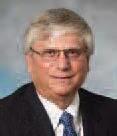


For many years, I volunteered at the De Paul Hospital Eye Clinic and the Eye Clinic at Norfolk General Hospital. I performed most of my eye surgeries at DePaul Hospital in Norfolk.
JN: Why did you wait until you were 86 to retire?
IL: Why would I retire and leave something so enjoyable and stimulating with the opportunity
14 | JEWISH NEWS | June 26, 2023 | jewishnewsva.org HEALTHCARE Create a Jewish legacy for the community you love through planned charitable giving . . .ask ushow LIFE INSURANCE • LONG-TERM CARE INSURANCE • GROUP HEALTH INSURANCE • MEDICARE 757-340-5600 277 Bendix Road, Suite 500 • Virginia Beach www.spindelagency.com Ron Spindel rspindel@spindelagency.com a member of The Frieden Agency Jody Balaban jbalaban@spindelagency.com christopherlyon@friedenagency.com INSURANCE. EMPLOYEE BENEFITS. Chr is Lyon
Brannon Johnson (grandson), a third-year medical student at EVMS and Ira Lederman, MD at Johnson’s white coat ceremony. Lederman had the honor of putting the coat on his grandson for the ceremony. Typically, the EVMS faculty or staff put on the coats for the M1 students, but family members who are in the medical profession are allowed to come on stage to give the student their white coat.
of helping others at the same time? Also, working allows me the ability to get to know so many wonderful people.
JN: What are your plans for after June 30?
IL: I plan to sleep in the mornings. I am not certain of my plans other than to spend more time alongside my wife. I may audit some college classes.
JN: Any other thoughts?
IL: My hobbies include painting and playing the piano. For my 60th birthday, my wife purchased art lessons for me. I painted over 50 oil paintings, including portraits of family members.
It is a bittersweet experience retiring after 55 years of practicing medicine and saying goodbye to patients, many of whom I have treated for 30 to 40 years.
Ira Lederman’s Qualifications/Leadership/Honors
• Ophthalmologist, board certified, 1968
• American Academy of Ophthalmology, Fellow
• American college of Surgeons, Fellow
• Temple Israel, president, 1978-1980
• Lake Taylor Transitional Care Hospital and Beth Sholom Village, Ophthalmology consultant
• De Paul Hospital, Department of Ophthalmology chair for over 20 years

• Virginia Society of Ophthalmology – Board of Directors for over 25 years
• Virginia Society Ophthalmology, president, 1992-1994
• Virginia Society of Eye Physicians and Surgeons (VSEPS), counselor emeritus
• American Academy of Ophthalmology, Counselor for Virginia, 6 years

• Eastern Virginia Medical School, joined the faculty in 1975. Worked through the academic ranks and attained the rank of Professor of Clinical Ophthalmology.
• Medical Society of Virginia and the Virginia Society of Eye Physicians and Surgeons (formerly • Virginia Society of Ophthalmology), member for 50 years
• Volunteer conductor of interviews for medical school applicants
• Published multiple articles in peer review journals, gave talks in various locations, including a visiting lecture in Hong Kong
• Ophthalmic Technology Program 1984 - until closing, approximately 25 years later, co-founder and medical director
• EVMS, Department of Ophthalmology vice chairman, 1984-1994
• Old Dominion University College of Health Sciences, adjunct professor, 2011 – for approximately 5 years

• VSEPS, created the “Ira Lederman Legislative Vision Award” and gave this award out for many years to Virginia legislators in support of vision and Ophthalmology.
This award acknowledges one’s service to the public, particular and significant contribution to the profession of ophthalmology and the visual care and welfare of Virginia’s residents, and an exemplary commitment to enhancing the delivery of quality health care.


"Recently my mother required 12 hour per day personal care assistance. On short notice, Changing Tides Home Care provided the necessary assistance. They have been responsive to my mother's needs and have kept the family informed by telephone, text and portal. I am very pleased with their services.”



 -Andrew H. Hook, President of Hook Law Center
-Andrew H. Hook, President of Hook Law Center
jewishnewsva.org | May 1, 2023 | Israel @ 75 | JEWISH NEWS | 15 jewishnewsva.org | June 26, 2023 HEALTHCARE
Senior Care with Total Peace of Mind. • Real-Time Online Family Portal • Assistance with Daily Activities • Companionship • Medication Assistance • Toileting/Incontinence Care • Errands • Meal Preparation • Transportation • Dementia/Memory Care Specialists • Light Housekeeping • And More!
Does Your Loved One Need Care? The Care You Need. The Quality You Deserve. www.changingtides.com Call Today for a Free Consultation (757) 963-0028
Ira and Joan Lederman with children: Beth Johnson, Steve Lederman, and Laura Marcus.
Seven ways to offer support and Jewish strength to friends or loved ones facing cancer
Suzanne Kurtz Sloan
When Shoshana Polakoff, 40, received an unexpected breast cancer diagnosis three years ago, the mother of three young children needed extra support. Her friends, family, and Jewish community in the Washington Heights neighborhood of Manhattan immediately stepped up.
They organized help with after-school childcare, packed school lunches for her kids and sent her little notes of encouragement while Polakoff endured trying cancer treatments.
“I felt pounds lighter and overwhelmed by the chesed that mobilized so quickly,” says Polakoff, using the Hebrew term for kindness. “And the practical help was such an incredible gift.”
Too often, however, friends and loved ones of cancer patients are at a loss for how to respond when someone close to them is diagnosed with cancer.

“Often they feel just as thrown into this new reality as the woman herself and are not sure what to do next,” says Adina Fleischmann, chief services officer for Sharsheret, the national Jewish breast cancer and ovarian cancer organization.
This is especially the case for young people who might never have had a family member or friend diagnosed with cancer before.
Fleischmann — whose organization offers extensive resources for cancer patients, ranging from emotional support, mental health counseling, and education to financial subsidies for women and their families facing breast and ovarian cancer — has some guidance for what to say, how to reach out and what kind of help might be appropriate to provide in the face of a friend or family member’s cancer diagnosis.

It’s all about providing chizuk – Hebrew for strength – to the person facing cancer.
1. Establish the “Kvetching Order”
The “Kvetching Order,” based on a concept called the Ring Theory developed by clinical psychologist Susan Silk, dictates that those close to someone struggling with a cancer diagnosis offer only support to the cancer patient, and any kvetching about their own stress outward.
Thus, the person with cancer is at the center of a circle surrounded by a ring of her or his most intimate friends and loved ones. More distant concentric rings include other friends, acquaintances, more distant family, and community members.
Colloquially known as “comfort in, dump out,” the Kvetching Order establishes a flow of support directed toward the person facing cancer.
2. Be clear and specific with offers of help



Support can look and feel different to different people facing cancer; each person’s needs and life circumstances are unique. When younger women are diagnosed with cancer — as often is the case with ovarian or breast cancers, where 50% of new diagnoses are in women under age 63 — patients often need extra help managing their responsibilities as parents and/or career professionals.
“Let the woman guide the journey,” Fleischmann says of the cancer patient. “Follow her lead.”
Sharsheret suggests offering concrete, practical assistance, such as offering to take the patient’s child to after-school activities or helping with homework. Maybe offer to come over to help clean the house, do laundry, or pick up groceries and make dinner for the family.

“But give the woman the feeling of control,” Fleischmann says. “Let her be in control of your support.”
Thus, a concrete suggestion like, “Can I bring you pizza for dinner on Wednesday?” is better than a vague offer of “What can I do to help?”
3. Check in often but don’t expect a response
By all means reach out to the person facing cancer. But if they don’t respond to your phone calls, emails, or texts, don’t be put off.

16 | JEWISH NEWS | June 26, 2023 | jewishnewsva.org HEALTHCARE
– – – – – – – – – – – – – – – – – – – – – – – – – – – – – – – – – – – – – – – – – – – – – – – – – – –
– – – – – – – – – – – – – – – – – – – – – – – – – – – – – – – – – – – – – – – – – – – – – – – – – – –
– – – – – – – – – – – – – – – – – – – – – – – – – – – – – – – – – – – – – – – – – – – – – – – – – – –
Norfolk 220 W. Brambleton 757-622-0200 Virginia Beach 1547 Laskin Road 757-425-0200 www.GilbertEyecare.com Monday–Friday 8:30am–5:00pm | Saturday 10:00am–2:00pm A cool look for a hot summer
“Sometimes the woman may not have the time or energy to respond,” Fleischmann says. That doesn’t mean you shouldn’t continue reaching out. “She will appreciate knowing that you’re thinking of her.”
Polakoff found small gestures particularly meaningful.
“Little things meant a lot,” she says. “Like just a note that said, ‘I’m thinking of you. Have a good Shabbos.’”
4. Leave cancer out of it sometimes and just be with them
Kristen Harvey, who at 23 was faced with an ovarian cancer diagnosis for the second time, says it was important to have friends around her with whom she could talk about the future.
“Just being there was the best thing,” says Harvey, who recently graduated from college and lives in Michigan. “We didn’t need to do anything. I appreciated when people came over and we just hung out and watched a movie.”
Alexis Wilson, a teacher in Jupiter, Florida, says her friendships were essential during her breast cancer treatment. Before starting chemotherapy, her friends threw her a big party to which everyone showed up in different-colored wigs and decorated her yard with signs.
“My friends played a big role,” says Wilson, 39. “I felt like I wasn’t alone.”
5. Continue your support throughout someone’s cancer journey
For some women, “maintenance treatment” can last for many years beyond the active treatments of chemotherapy, radiation, or surgery. Women living with metastatic breast cancer, for example, usually continue treatment throughout their lives.
Fleischmann recommends checking in with a woman along every step of her cancer journey: not just the period of active treatment, but also during maintenance treatment, survivorship, and if she is living with metastatic or advanced cancer.
“It’s nice to know my friends and family continued to reach out once I was done with treatment,” Harvey says. “Back to normal doesn’t mean life is ever normal.”
There are often heightened emotional needs around anniversaries of certain cancer diagnoses or treatment dates, Fleischmann says, so marking these dates could be important.

6. Make sure you have your own support system
If you’re particularly close to the person with cancer, you may experience feelings of being overwhelmed yourself. It’s important to take care of your own emotional well-being and not dismiss it in the face of someone else’s more pressing illness.
“As a caregiver, you can be very easily drained without your own coping mechanisms,” Fleischmann says.
Make sure to take care of yourself physically and emotionally so that you have the capacity to attend to your friend or loved one’s needs.
7. Talk to your healthcare provider and safeguard your own health


Even while supporting a loved one or friend with breast or ovarian cancer, it’s important to safeguard your own health.
The BRCA genetic mutation that causes breast cancer and ovarian cancer is much more common among Ashkenazi Jewish women than in the general U.S. population. About 1 in 40 Ashkenazi Jewish women and men carry the mutation, compared to 1 in 400 in the general population. Ashkenazi Jewish men are also at elevated risk for melanoma and prostate and pancreatic cancer.
“Talk to your healthcare provider,” Fleischmann says. “Those whose family members are facing hereditary breast and ovarian cancer should speak with their doctor or genetic counselor to see how this may affect them, too, and learn about appropriate testing and precautions.”
jewishnewsva.org | May 1, 2023 | Israel @ 75 | JEWISH NEWS | 17 jewishnewsva.org | June 26, 2023 HEALTHCARE THE TALBOT ON GRANBY 6311 Granby Street • Norfolk, VA 23505 • 757-451-5100 www.TheTalbotOnGranby.com INDEPENDENT LIVING © 2021 Five Star Senior Living We’re filling up fast! Call today to schedule a tour and to learn more about our monthly special. With house prices soaring, there’s no better time to upgrade to the life of your dreams: Talbot on Granby Delicious food, engaging activities, friends around every corner— it’s all waiting for you to enjoy. Come on in.
– – – – – – – – – – – – – – – – – – – – – – – – – – – – – – – – – – – – – – – – – – – – – – – – – – –
– – – – – – – – – – – – – – – – – – – – – – – – – – – – – – – – – – – – – – – – – – – – – – – – – – –
– – – – – – – – – – – – – – – – – – – – – – – – – – – – – – – – – – – – – – – – – – – – – – – – – – –
– – – – – – – – – – – – – – – – – – – – – – – – – – – – – – – – – – – – – – – – – – – – – – – – – – –
– – – – – – – – – – – – – – – – – – – – – – – – – – – – – – – – – – – – – – – – – – – – – – – – – – –
This article was sponsored by and produced in partnership with Sharsheret, the national Jewish breast cancer and ovarian cancer organization. This article was produced by JTA’s native content team.
Hebrew University’s Startup prize goes to firm developing system to prevent and heal strokes


Avertto, a startup in the health field, emerged victorious in 2023’s highly competitive Asper Prize startup award. Presented by ASPER-HUJI Innovate, The Hebrew University of Jerusalem’s Innovation and Entrepreneurship Center, and the Asper Foundation, the award recognized Avertto’s outstanding achievement in using innovative technologies to make a positive global impact.
With 45 startups vying for the prestigious prize, the competition was substantial, showcasing ground-breaking solutions to significant challenges in various sectors such as healthcare, food security, global warming, education, and industrial manufacturing. These startups were founded by Hebrew University researchers, alumni, or relied on the University’s intellectual property while also meeting the UN’s Sustainable Development Goals (SDG’s). The prize of NIS 100,000 was awarded to Avertto for developing a system to prevent and heal strokes.
Avertto works to prevent strokes and to heal the disease, instead of treating it. Strokes are a key cause of disabilities and endanger the lives of millions. If it is administered in time, treatment for stroke damage is efficient. Avertto aims for early intervention instead of treatment. Avertto has developed a system that monitors blood flow to the brain, detects any changes, and provides real-time alerts to enable timely treatment.
Throughout the competition, the entrepreneurs had the opportunity to pitch their startups to industry experts and high-ranking venture capitalists, opening doors to potential funding and partnerships. The five startups that reached the final round presented their ventures to the Board of Governors of The Hebrew University whose members are senior leaders from all over the world and who, along with a distinguished panel of judges, chose the winning startup. Among the five finalists were a diverse range of innovative startups.
• ANINA Culinary Art caught the judges’ attention with their mission to transform ”ugly vegetables” that are typically discarded into swift, tasty, and nutritious meals.
• Avertto impressed with their development of a medical device capable of real-time stroke detection, facilitating timely treatment.
• Daika Wood showcased their groundbreaking wood material created through the recycling of wood waste while maintaining its original properties.
• Quai.MD demonstrated their AI-powered solution that economically assists healthcare providers in complex medical diagnoses.
• RumaFeed utilized innovative molecular technologies to eliminate toxic chemicals in potato greenery, thereby preventing the wastage of millions of tons of potato leaves each year.
Dr. Amnon Dekel, director of the Center for Innovation at the university congratulated the fi nalists and gave details of the criteria for choosing the winning startup. “Thank you to all the startups that entered the competition and for their efforts to make the world a better place,” he said. “You, the brains behind the startups, are at the forefront of tomorrow’s world in that not only are you holding your own in the commercial world, but you are also serving as an important model for the world of sustainability.”
Steven Warsof: An Inside Business 2023 Healthcare Hero
Inside Business presented the 2023 Healthcare Heroes Awards to “recognize outstanding individuals and organizations that are making a noteworthy difference in healthcare across Hampton Roads” on Tuesday, June 20. The breakfast event took place at the Westin Virginia Beach Town Center.
Steven Warsof, MD, EVMS professor of Obstetrics and Gynecology, was one of the honorees.
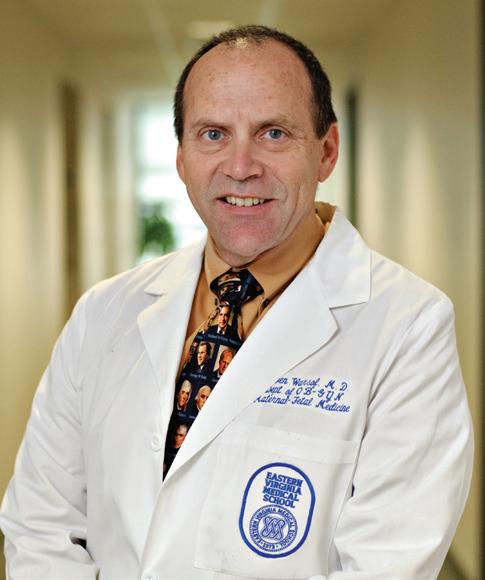
“It was a great honor to receive this award as a Healthcare Hero,” says Warsof.
“Although I have dedicated my professional life to providing health care to high-risk pregnancies in Hampton Roads, there remains much to do especially in the last few years as women’s reproductive rights are being challenged. As one of a few obstetricians who remember what things were like prior to Roe v Wade, I am saddened that we are going back to those times. I am concerned that once the government is allowed to take any right from women, what rights will the government be willing to take next.”
In addition to his advocacy, Warsof is involved with the medical community in Israel as well as in Hampton Roads.
In 2018, Warsof was made an honorary member of the Israeli Society of Obstetrics and Gynecology for his long-standing volunteer efforts at the Azoraeli School of Medicine of the Galilee at Bar Ilan University in Sfat Israel.
The following year, Warsof helped bridge the relationship between Eastern Virginia Medical School (EVMS) in Norfolk and the Bar-Ilan University Medical School (BIUMS) in Safed, Israel, bringing Israeli exchange medical students to Tidewater. “Providing high quality community healthcare services to patients at risk both in America and northern Israel is among the major learning insights of medical students participating in the exchange program,” he said in 2019.
“With partnerships such as this, the future looks bright for these two institutions,” said Warsof.
Since the Israeli school opened in 2011, Warsof has taught on numerous occasions at BIUMS.
In an interview with Jewish News in 2015, Warsof noted, “Teaching in Safed combines my three passions— getting closer to my family in Israel, teaching obstetrics, and helping Israel in the best way I know how.”
Among his many volunteer activities, Warsof served as president of Temple Emanuel, beginning on June 5, 2018.
18 | JEWISH NEWS | June 26, 2023 | jewishnewsva.org HEALTHCARE
– – – – – – – – – – – – – –
Gail Asper, chair of the Asper Foundation; Dr. Hila Ben-Pazi, co-founder and CEO of Avertto; Prof. Asher Cohen, president, Hebrew University of Jerusalem; Yaniv Kirma, CTO Avertto; Ayelet Cohen, executive deputy director, Asper HUJI Innovate; Dr. Amnon Dekel, director of the Center for Innovation, Hebrew University of Jerusalem. Credit: Bruno Sharvit
The Sacklers, Jewish family behind OxyContin, will pay $6B in deal that shields them from lawsuits
Andrew Lapin
(JTA) – The Sackler family, the Jewish billionaires whose marketing of the painkiller drug OxyContin fueled the United States’ ongoing opioid epidemic, will receive full immunity from all civil legal claims in exchange for spending up to $6 billion on addiction treatment and prevention programs.
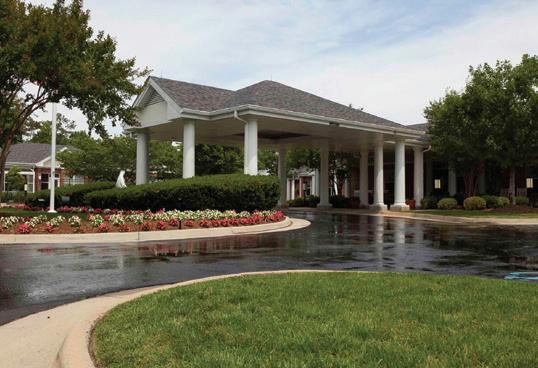
The decision to grant immunity by a federal appeals court panel last month effectively ends the thousands of civil lawsuits that have been filed against Purdue Pharma, the Sacklers’ company, over opioid deaths.


But it clears the way for the company to declare bankruptcy, a move considered essential to a plan to pay out billions of dollars to help states and communities address the opioid crisis. Of the up to $6 billion allocated under the deal, about $750 million will go to people who became addicted to OxyContin, and to family members of people who died from overdoses.





The ruling reverses a lower court’s 2021 ruling that bankruptcy proceedings were an improper tool for shielding wealthy private citizens from legal repercussions. It does not grant members of the Sackler family immunity against possible future criminal charges.
In a brief statement sent after the publication of this article, the Sackler family welcomed the decision and said it is “critical to providing substantial resources for people and communities in need.”









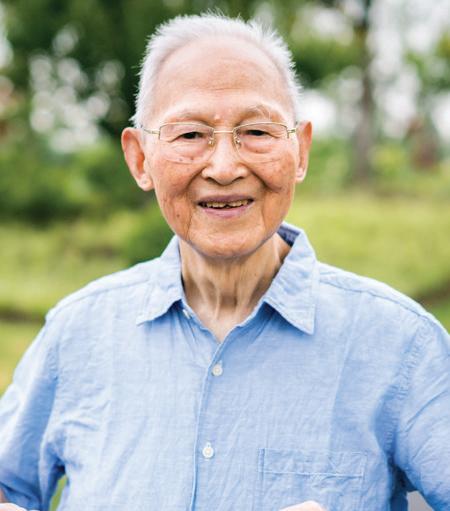









Purdue founders Arthur, Mortimer, and Raymond Sackler were the sons of Jewish immigrants in Brooklyn who attended medical school in Scotland because American schools wouldn’t admit Jews at the time. Mortimer and Raymond introduced OxyContin in 1996, after Arthur had left the company; the family then made billions by aggressively marketing the drug for more than two decades, even amid signs it was driving users into opiate addiction.
The three brothers have all died, but other members of the family have retained control of Purdue Pharma and their wealth, estimated at about $11 billion two years ago.

The Sackler name had been a regular presence in philanthropic circles until the opioid lawsuits began building up in 2019, at which point many cultural institutions began refusing the family’s donations and removing their name from buildings. The Jewish artist and activist Nan Goldin spearheaded a grassroots movement opposing the family for years.
One notable beneficiary of the Sacklers, Tel Aviv University, resisted pressure to drop the Sackler name from its medical school — though the American-facing wing of its medical school quietly removed the Sackler name from its marketing materials last year. But on June 21, the university announced that the family “has kindly agreed to remove their name” from the medical school.
jewishnewsva.org | May 1, 2023 | Israel @ 75 | JEWISH NEWS | 19 jewishnewsva.org | June 26, 2023 We are dedicated to providing quality senior living care for you or your loved one. Call today to schedule a tour of our Virginia Beach communities. Assisted Living • Extensive Assisted Living Memory Care • Nursing Care Coordinated Services Management, Inc. Professional Management of Retirement Communities Since 1981 Working TOGETHER TO CARE for You 757-495-4211 4560 Princess Anne Road ourladyperpetualhelp.com MARIAN MANOR A S SISTED LIVI N G 757-456-5018 5345 Marian Lane marian-manor.com Nonprofit communities sponsored by the Catholic Diocese of Richmond • Open to people of all faiths. Like or Follow Us on Facebook! HEALTHCARE
When a breast cancer diagnosis knocked me down, a network of Jewish women lifted me up

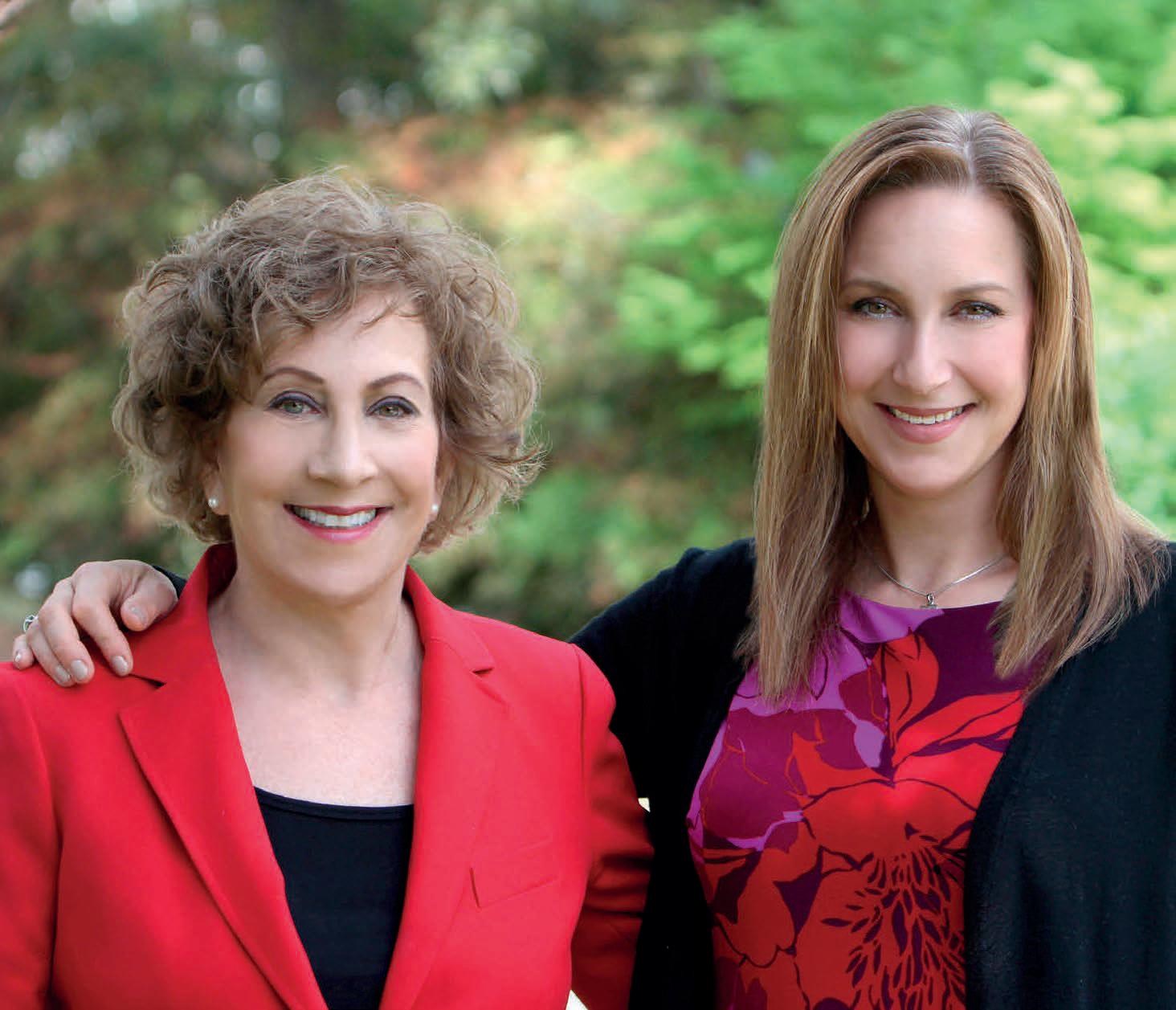 Karen E. H. Skinazi
Karen E. H. Skinazi
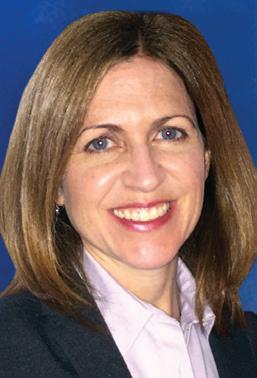


(JTA) — On the way home from the hospital where I was given my diagnosis of grade 2 invasive lobular breast cancer, I directed my husband, through my tears, to stop at the kosher store.
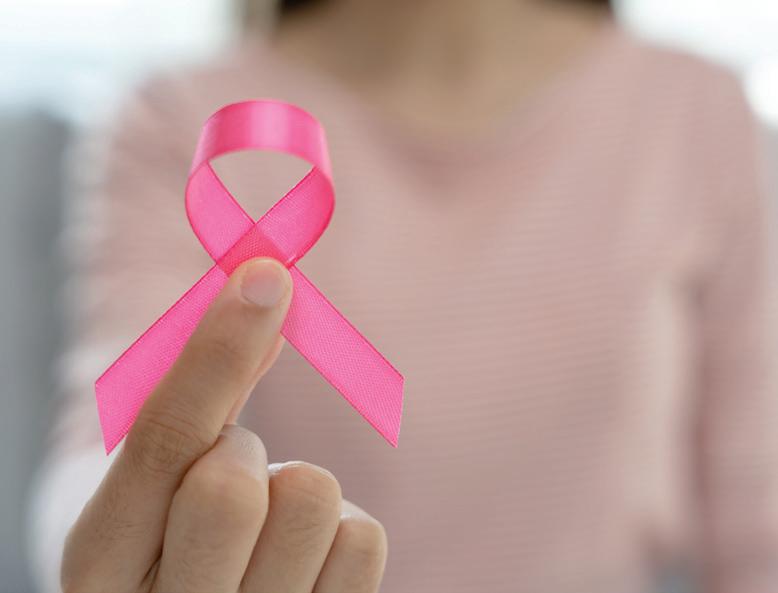


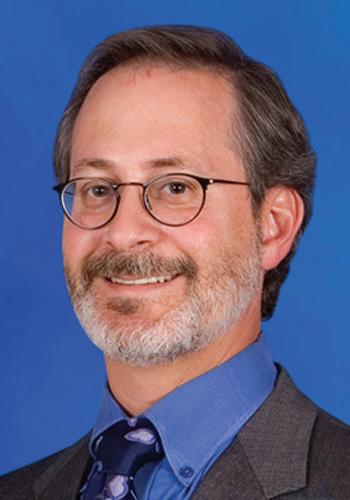

“I don’t want to see anyone right now,” I said, knowing the inevitability of running into someone we knew in the small Jewish community where we live, “so can you go in?” He pulled into the parking lot. “We need challah,” I reminded him. It was Thursday, after all. The next evening was Shabbat. Time doesn’t stand still for cancer.
My hospital appointment took place two days after the front page of the New York Times declared: “When Should Women Get Regular Mammograms: At 40, U.S. Panel Now Says.” I was 48. Breast cancer has long been the second most common cancer for women, after skin cancer. It is also the most lethal after lung cancer. Statistically, though, most women affected are postmenopausal, so unless there was a specific reason to test early, women were screened regularly from the age of 50. Now, the advice has changed. Breast cancer is rising in younger women. For women in their 40s, the rate of increase between 2015 and 2019 doubled from the previous decade to 2 per cent per year. Why is this happening? Air pollution? Microplastics? Chemicals in our food? We don’t know.
In the days following my appointment, there was a proliferation of articles about the topic. Importantly, doctors explained that the cancer women are diagnosed with in their 40s tends to be a more aggressive type of cancer. Cancers in premenopausal women grow faster; many breast cancers, like mine, are hormone sensitive. (Got estrogen? Bad luck for you.)
When I posted the news about my diagnosis — on Facebook, because I’m an oversharing type — I was stunned by the number of friends my age, more discreet about their lives, who sent me messages to tell me they had recently gone through the same thing.
I’m not sure why I thought I was immune. Or maybe I didn’t — maybe I just never gave it much thought. Even when I found the lump on my breast, I was dismissive. I went to the doctor, and she asked if anyone in my family had had breast cancer. “Oh, who knows? They were all murdered,” I said blithely. Her eyes bugged. “In the Holocaust,” I added. “Your…mother? Grandmother? Sisters?” “Oh! No, no history of breast cancer in my immediate family.”

Add to that, my mother and sister both tested negative for the BRCA gene mutations, and that’s my Ashkenazi side. The thing is, though, most women who test positive for breast cancer have no family history of it.
But also, I’d done everything right! If you look through the preventative measures, I took all of them. I had three kids by 35, and I breastfed them. I have a healthy, mostly plant-based diet; I walk and cycle everywhere. I’m not a drinker or smoker. I eat so many blueberries!

Several articles emphasized the particular danger for Black women, with good reason: They have twice the mortality rate of white women. But as I did my research, I realized that Jewish women should also be on high alert. We’ve long known that one in 40 Ashkenazi women has the BRCA gene mutation, significantly raising the risk of breast cancer (50% of women with the gene mutation will get breast cancer) as well ovarian cancer, which is much harder to detect and far more deadly. So many of my friends who reached out to me to tell me of their breast cancer experiences are Jewish; interestingly, not one has the BRCA mutation. Are Jewish women generally more susceptible to breast cancer?
This seems to be an important area of future research.
20 | JEWISH NEWS | June 12, 2023 | jewishnewsva.org With a combined 40 years of experience, whether you’re buying, selling or investing, we can assist you with all of your real estate needs. HowardHanna.com Local and Experienced…a winning combination! NANCY EVANS Associate Broker (757) 287-5765 NancyEvans@HowardHanna.com HEATHER EVANS Property Manager (757) 287-5762 HeatherEvans@HowardHanna.com Providing Care to Children and Adults for Over 60 years www.allergydocs.net Norfolk (757) 583-4382 Virginia Beach (757) 481- 4383 Chesapeake (757) 547-7702 We make it as easy as possible on the patient and referring physician by ACCEPTING MOST INSURANCES. Lisa
Deafenbaugh PA-C Kim Pham NP-C
If you are suffering from allergies or asthma, please contact us. We can help. Leaders in food allergy detection and treatment. HEALTHCARE
Dr. Gary Moss Dr. Greg Pendell Dr. Craig Koenig Dr. Marguerite Lengkeek
Hadassah Medical Organization opens medical facility in Beit Shemesh
Amajor Israeli hospital system, the Hadassah Medical Organization opened a medical facility this month in Beit Shemesh, Israel’s fastest-growing city, located 22 miles from Jerusalem. The new site, to be known as Hadassah Beit Shemesh, will bring Hadassah’s sophisticated medical services to the city, whose population is growing nine percent a year and already exceeds 150,000.
The new facility, located in the Migdal HaMayim neighborhood, will relieve Beit Shemesh inhabitants of having to travel out of town to receive specialized medical care.

The services will become available in
and Rhoda Smolow, national president of Hadassah, The Women’s Zionist Organization of America. The American group’s financial support helped make Hadassah Beit Shemesh possible.
“The opening of Hadassah Beit Shemesh is part of the Hadassah Medical Organization’s vision to provide services where people live,” said Weiss at the opening. “We want to enable residents of Beit Shemesh and the surrounding areas to easily benefit from Hadassah’s high-quality care.”
support both exemplary care for more than 1,000,000 people every year and world-renowned medical research. Hadassah serves without regard to race, religion, or


nationality. Hadassah also supports youth villages that set at-risk children in Israel on the path to a successful future.
stages, starting with cardiology, pediatric hematology, gastroenterology, gynecological surgery, the treatment of pediatric eating/feeding issues, and a pain clinic. The next stage will add children’s psychiatry, ophthalmology, nephrology, treatment for respiratory issues, and surgery in what will be two operating rooms.

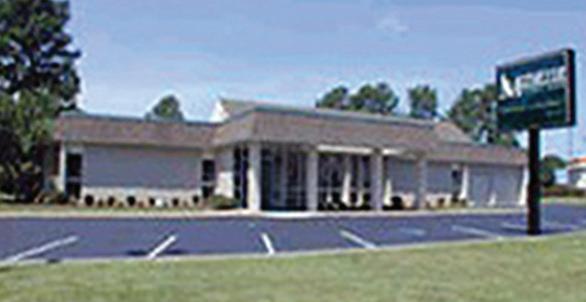
The director of the new branch is Boris Vershitzky, MD, a Hadassah specialist in family medicine and cardiology.
Hadassah Beit Shemesh is the result of a multi-year partnership between the Beit Shemesh Municipality, headed by Mayor Aliza Bloch, and the Hadassah Medical Organization, led by Director General Dr. Yoram Weiss and Dalia Itzik, chair of the board of directors and former Speaker of the Knesset, Israel’s national legislature.
At the official opening on June 14, Israel’s Minister of Health, Moshe Arbel, and other dignitaries joined Weiss, Itzik,
“Just as the women of Hadassah, The Women’s Zionist Organization of America, began their work in pre-state Israel by meeting the community’s medical needs, Hadassah Beit Shemesh, helped by our almost 300,000 members in the U.S., will bring expert medical care to the city’s growing population,” said Smolow. For more than a century, the Hadassah Medical Organization has set the standard for excellence in medical care and research in Israel. The experience and ingenuity of Hadassah’s doctors and scientists have yielded ideas with vast potential in all areas of medicine, including therapeutics, diagnostic medical devices, and digital health. In 2023, Newsweek named Hadassah a world leader in oncology, the only medical center in Israel to receive that honor, and one of the world’s top hospitals in cardiology and smart technology.
Hadassah, The Women’s Zionist Organization of America, is the largest Jewish women’s organization in the United States. With nearly 300,000 members, associates and supporters, Hadassah brings women together to advocate on such critical issues as ensuring Israel’s security, combating antisemitism, and promoting women’s health. Through the Hadassah Medical Organization in Jerusalem, Hadassah helps
• Family owned and operated since 1917
• Affordable services to fit any budget
• Advance funeral planning
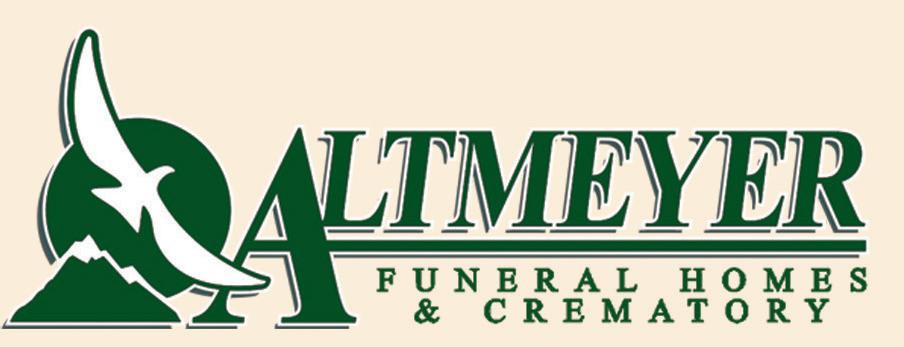


• Professional, experienced, caring staff
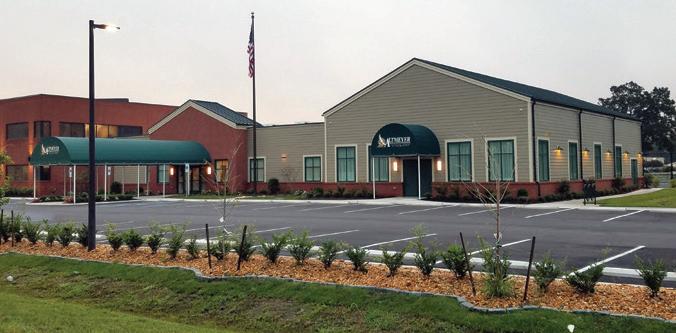

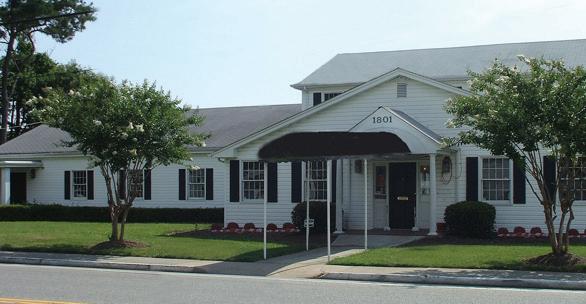





• Flexible burial options
• Flexible payment options
jewishnewsva.org | May 1, 2023 | Israel @ 75 | JEWISH NEWS | 21 jewishnewsva.org | June 12, 2023 JEWISH
HEALTHCARE HEALTHCARE
Southside Chapel • 5033 Rouse Drive Virginia Beach • 757 422-4000 Riverside Chapel • 7415 River Road Newport News • 757 245-1525 Denbigh Chapel • 12893 Jefferson Ave. Newport News • 757 874-4200 Maestas Chapel • 1801 Baltic Ave. Virginia Beach • 757 428-1112
by all area Rabbis and Chevrah Kadisha
Approved
Chesapeake Chapel • 929 S. Battlefield Blvd. Chesapeake • 757 482-3311 www . altmeyerfuneralandcremation . com
Chris Sisler, Vice President, Member of Ohef Sholom Temple, Board member of the Berger-Goldrich Home at Beth Sholom Village, James E. Altmeyer, Jr., President, James E. Altmeyer, Sr., Owner

























 -Andrew H. Hook, President of Hook Law Center
-Andrew H. Hook, President of Hook Law Center






























 Karen E. H. Skinazi
Karen E. H. Skinazi





















